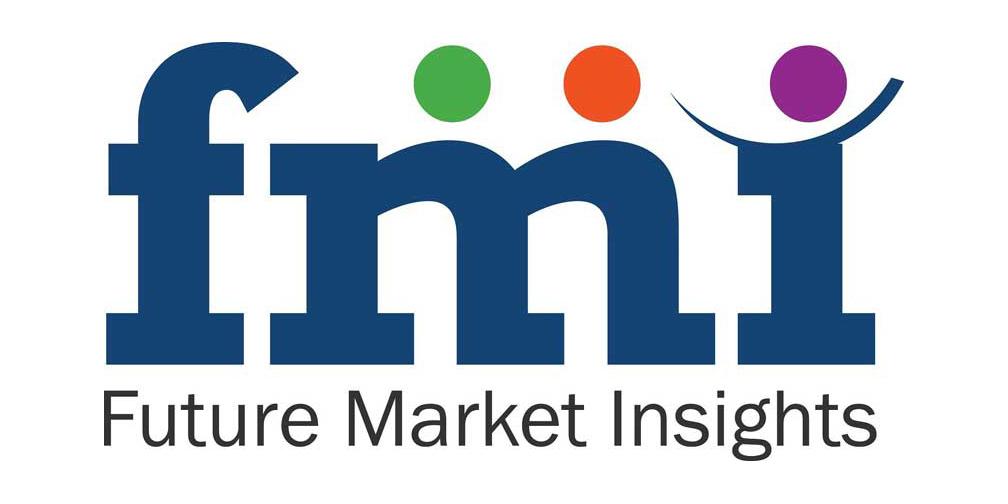Human Milk Oligosaccharides Market Driven by Gut Health and Immunity Trends

The human milk oligosaccharides (HMO) market is moving into a transformative phase, poised to grow from USD 101.1 million in 2025 to USD 191.6 million by 2035, at a steady CAGR of 6.6%. Long recognized for their critical role in infant development, HMOs are now crossing into new categories, including functional foods, nutraceuticals, and clinical nutrition. Industry leaders and new entrants alike are making strategic moves to expand capacity, accelerate innovation, and meet the surging demand for these bioengineered ingredients.
Infant formula remains the primary driver, expected to account for 60% of the market in 2025. At the same time, functional food and dietary supplement applications are carving a growing share, as HMOs gain recognition for their prebiotic, immune-modulating, and gut-brain axis benefits. The Asia-Pacific region, led by China and India, is emerging as a growth hotspot, with Europe and North America maintaining their dominance through technological innovation and regulatory progress.
Key Market Forces Shaping Growth
Awareness of HMOs’ health benefits is expanding beyond infancy. Studies have shown their potential in immune system modulation, cognitive development, and microbiome regulation, prompting inclusion in both pediatric and adult-targeted products. Manufacturers are scaling up production of leading HMOs such as 2’-FL, 3-FL, and LNnT, which are among the most studied and globally approved.
Recent research has further fueled optimism. In June 2024, AZoLifeSciences highlighted a breakthrough in producing HMOs using genetically engineered plants, demonstrating the viability of transgenic biofactories for cost-effective, sustainable manufacturing. Such advancements point to a future where HMOs become more widely available across nutrition and medical segments.
Investment Trends Across Core Segments
By 2025, fucosylated HMOs are projected to secure a 35% market share, driven by their ability to enhance immunity and gut health. Infant formula formulations incorporating these HMOs have been linked to improved toddler attention scores, underscoring their premium positioning in advanced pediatric nutrition.
DSM-Firmenich and Evonik’s 2024 production expansion in Slovakia illustrates how major players are reinforcing European supply chains. At the same time, technological innovations, such as enzymatic fucose recycling, are lowering production costs and environmental impact, opening the door to broader adoption.
Infant Formula Remains the Market Anchor
Infant formula will retain a commanding 60% share of the HMO market in 2025. With regulatory clearances accelerating across key regions, companies are racing to launch dual- and multi-HMO blends that mimic the diversity of breast milk.
China has already approved three-HMO blends for domestic formulas, paving the way for local giants such as Yili, Mengniu, and Feihe to expand premium offerings. Europe has witnessed new product launches like Danone’s Aptamil Prosyneo, which features a five-HMO mix and has demonstrated clinical benefits in reducing antibiotic use among children.
In parallel, companies like Givaudan are innovating around taste and formulation, ensuring that HMO-enriched products are palatable and accepted by caregivers and consumers alike.
Emerging Applications and Regional Insights
While infant nutrition continues to dominate, diversification into functional foods and adult wellness products is gaining momentum. In the United States, HMO-infused beverages are making headway in the functional drink segment, marketed as gut-health and immunity-boosting solutions for adults.
In China, regional customization of HMOs in infant formulas is reflecting dietary and microbiome diversity, with local producers tailoring blends to specific nutritional needs. Germany, meanwhile, is pioneering the medical nutrition pathway, with HMOs now being integrated into therapeutic formulations targeting inflammatory diseases and microbiome restoration.
Semi-Annual Growth Insights
The industry is demonstrating nuanced growth patterns across half-yearly periods. The CAGR registered at 6.2% in the first half of 2024 and 6.7% in the second half, with a similar trajectory continuing into 2025, where growth moderates slightly to 6.5% in H1 and rebounds to 6.8% in H2. These shifts indicate steady demand acceleration as supply capabilities expand and regulatory clearances multiply.
Innovations Driving the Market Forward
Three central themes are emerging as defining factors for the future of the HMO market:
- Gut-brain axis integration: Clinical evidence is highlighting HMOs’ role in supporting cognitive development, memory, and stress regulation, leading to their inclusion in premium infant formulas.
- Fermentation-based cost efficiency: Precision fermentation is driving down production costs, making HMOs more accessible and scalable for medium-tier brands.
- Regulatory alignment: With approvals spreading across regions, the pathway for multi-HMO blends in global markets is clearer than ever, ensuring accelerated adoption.
Beyond 2’-FL, companies are diversifying into blends that include LNT, LNnT, 3’-SL, and 6’-SL, providing closer-to-nature nutritional solutions and supporting personalized nutrition across age groups.
Market Concentration and Competitive Landscape
The HMO market is concentrated but diverse, led by multinational giants and supported by specialized biotech innovators. Global leaders such as Nestlé Health Science, BASF, Abbott Nutrition, and FrieslandCampina Ingredients are leveraging their infrastructure to dominate supply and distribution.
Specialist firms including Chr. Hansen (Jennewein Biotechnologie), dsm-firmenich (Glycom), and Inbiose are at the forefront of innovation, developing rare HMOs and advanced fermentation platforms. Smaller players like ZuChem, Kyowa Hakko Bio, and GlycoSyn are carving niches by focusing on specialized production methods and localized markets.
Recent Developments Underscoring Growth
In March 2024, DSM-Firmenich secured regulatory approval for its GlyCare 3-FL in the USA and Australia, enabling use in functional foods and supplements. In November 2024, Nestlé Health Science introduced an HMO-enriched milk in China under its Wyeth Illume brand, signaling rapid expansion into Asia-Pacific.
These developments highlight the sector’s trajectory: expanding applications, regulatory progress, and global demand.
Purchase this Report for USD 3,500 Only | Get an Exclusive Discount Instantly! https://www.futuremarketinsights.com/checkout/4252
Everything You Need—within Your Budget. Request a Special Price Now! https://www.futuremarketinsights.com/reports/sample/rep-gb-4252
- Art
- Causes
- Crafts
- Dance
- Drinks
- Film
- Fitness
- Food
- Spellen
- Gardening
- Health
- Home
- Literature
- Music
- Networking
- Other
- Party
- Religion
- Shopping
- Sports
- Theater
- Wellness


